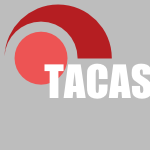56 papers:
 HT-2015-Baeza-YatesS #analysis #generative
HT-2015-Baeza-YatesS #analysis #generative- Wisdom of the Crowd or Wisdom of a Few?: An Analysis of Users’ Content Generation (RABY, DST), pp. 69–74.
 ICALP-v1-2015-BjorklundKKZ
ICALP-v1-2015-BjorklundKKZ- Spotting Trees with Few Leaves (AB, VK, LK, MZ), pp. 243–255.
 RecSys-2015-DalyBS #recommendation
RecSys-2015-DalyBS #recommendation- Crowd Sourcing, with a Few Answers: Recommending Commuters for Traffic Updates (ED, MB, FS), pp. 253–256.
 ASPLOS-2015-HaqueEHEBM #incremental #interactive #latency #named #parallel
ASPLOS-2015-HaqueEHEBM #incremental #interactive #latency #named #parallel- Few-to-Many: Incremental Parallelism for Reducing Tail Latency in Interactive Services (MEH, YHE, YH, SE, RB, KSM), pp. 161–175.
 SAT-2015-KullmannM #query
SAT-2015-KullmannM #query- Computing Maximal Autarkies with Few and Simple Oracle Queries (OK, JMS), pp. 138–155.
 SIGMOD-2014-MuhlbauerRSRK0
SIGMOD-2014-MuhlbauerRSRK0- One DBMS for all: the brawny few and the wimpy crowd (TM, WR, RS, AR, AK, TN), pp. 697–700.
 ICEIS-v1-2014-EsserSMS #documentation #information management
ICEIS-v1-2014-EsserSMS #documentation #information management- Few-exemplar Information Extraction for Business Documents (DE, DS, KM, AS), pp. 293–298.
 ICML-c1-2014-TandonR #graph #learning
ICML-c1-2014-TandonR #graph #learning- Learning Graphs with a Few Hubs (RT, PDR), pp. 602–610.
 ICPR-2014-RiabchenkoKC #generative #learning #modelling
ICPR-2014-RiabchenkoKC #generative #learning #modelling- Learning Generative Models of Object Parts from a Few Positive Examples (ER, JKK, KC), pp. 2287–2292.
 STOC-2013-Huang #approximate #satisfiability
STOC-2013-Huang #approximate #satisfiability- Approximation resistance on satisfiable instances for predicates with few accepting inputs (SH), pp. 457–466.
 ICALP-v1-2013-BorosEGM #algorithm #game studies #probability #pseudo #random
ICALP-v1-2013-BorosEGM #algorithm #game studies #probability #pseudo #random- A Pseudo-Polynomial Algorithm for Mean Payoff Stochastic Games with Perfect Information and a Few Random Positions (EB, KME, VG, KM), pp. 220–231.
 KDD-2013-KengneFTIRWS #execution #multi #scalability #sequence
KDD-2013-KengneFTIRWS #execution #multi #scalability #sequence- Efficiently rewriting large multimedia application execution traces with few event sequences (CKK, LCF, AT, NI, MCR, TW, MS), pp. 1348–1356.
 VMCAI-2013-AbdullaHH
VMCAI-2013-AbdullaHH- All for the Price of Few (PAA, FH, LH), pp. 476–495.
 CIKM-2012-AltingovdeBCOSU #query #web
CIKM-2012-AltingovdeBCOSU #query #web- Characterizing web search queries that match very few or no results (ISA, RB, BBC, RO, ES, ÖU), pp. 2000–2004.
 ICPR-2012-YabushitaSM #3d #framework #image #recognition
ICPR-2012-YabushitaSM #3d #framework #image #recognition- A framework of three-dimensional object recognition which needs only a few reference images (HY, JS, MM), pp. 1375–1378.
 KDD-2012-WuALYY #on the
KDD-2012-WuALYY #on the- On “one of the few” objects (YW, PKA, CL, JY, CY), pp. 1487–1495.
 RecSys-2012-ShaQMD #roadmap
RecSys-2012-ShaQMD #roadmap- Spotting trends: the wisdom of the few (XS, DQ, PM, MD), pp. 51–58.
 SIGIR-2012-Sun #classification #using #word
SIGIR-2012-Sun #classification #using #word- Short text classification using very few words (AS), pp. 1145–1146.
 VLDB-2011-KerstenIML #database #query #research
VLDB-2011-KerstenIML #database #query #research- The Researcher’s Guide to the Data Deluge: Querying a Scientific Database in Just a Few Seconds (MLK, SI, SM, EL), pp. 1474–1477.
 ICALP-v1-2011-KuhnM #graph
ICALP-v1-2011-KuhnM #graph- Vertex Cover in Graphs with Locally Few Colors (FK, MM), pp. 498–509.
 ICALP-v2-2011-Kapoutsis #nondeterminism
ICALP-v2-2011-Kapoutsis #nondeterminism- Nondeterminism Is Essential in Small 2FAs with Few Reversals (CAK), pp. 198–209.
 RecSys-2011-LiuMLY #elicitation #rating #recommendation
RecSys-2011-LiuMLY #elicitation #rating #recommendation- Wisdom of the better few: cold start recommendation via representative based rating elicitation (NNL, XM, CL, QY), pp. 37–44.
 SAT-2011-KullmannZ #normalisation #on the
SAT-2011-KullmannZ #normalisation #on the- On Variables with Few Occurrences in Conjunctive Normal Forms (OK, XZ), pp. 33–46.
 TACAS-2009-GouesW #mining #specification
TACAS-2009-GouesW #mining #specification- Specification Mining with Few False Positives (CLG, WW), pp. 292–306.
 HCI-NT-2009-HercegfiPTI #evaluation #monitoring #usability
HCI-NT-2009-HercegfiPTI #evaluation #monitoring #usability- Usability Evaluation by Monitoring Physiological and Other Data Simultaneously with a Time-Resolution of Only a Few Seconds (KH, MP, ST, LI), pp. 59–68.
 ICML-2009-FarhangfarGS #image #learning
ICML-2009-FarhangfarGS #image #learning- Learning to segment from a few well-selected training images (AF, RG, CS), pp. 305–312.
 RecSys-2009-PilaszyT #metadata #recommendation
RecSys-2009-PilaszyT #metadata #recommendation- Recommending new movies: even a few ratings are more valuable than metadata (IP, DT), pp. 93–100.
 SIGIR-2009-AmatriainLPKO #approach #collaboration #web
SIGIR-2009-AmatriainLPKO #approach #collaboration #web- The wisdom of the few: a collaborative filtering approach based on expert opinions from the web (XA, NL, JMP, HK, NO), pp. 532–539.
 SIGIR-2009-Savev #exclamation
SIGIR-2009-Savev #exclamation- A search engine in a few lines.: yes, we can! (SS), pp. 772–773.
 HPCA-2009-PowellBEMSY #named #parametricity #runtime #using
HPCA-2009-PowellBEMSY #named #parametricity #runtime #using- CAMP: A technique to estimate per-structure power at run-time using a few simple parameters (MDP, AB, JSE, SSM, BRS, SMY), pp. 289–300.
 FoSSaCS-2008-GimbertH #game studies #probability #random
FoSSaCS-2008-GimbertH #game studies #probability #random- Simple Stochastic Games with Few Random Vertices Are Easy to Solve (HG, FH), pp. 5–19.
 ICPR-2008-UkitaKK #using
ICPR-2008-UkitaKK #using- IBR-based free-viewpoint imaging of a complex scene using few cameras (NU, SK, MK), pp. 1–4.
 SIGIR-2008-BalogWR #modelling #query
SIGIR-2008-BalogWR #modelling #query- A few examples go a long way: constructing query models from elaborate query formulations (KB, WW, MdR), pp. 371–378.
 SIGIR-2008-WuO #classification #topic
SIGIR-2008-WuO #classification #topic- Bilingual topic aspect classification with a few training examples (YW, DWO), pp. 203–210.
 CASE-2007-TadakumaTH
CASE-2007-TadakumaTH- Few D.O.F. Walking Robot with Outer-Wheels (RT, KT, RDH), pp. 1117–1124.
 STOC-2007-HeggernesPTV
STOC-2007-HeggernesPTV- Interval completion with few edges (PH, CP, JAT, YV), pp. 374–381.
 STOC-2007-Kenyon-MathieuS #fault #how #rank
STOC-2007-Kenyon-MathieuS #fault #how #rank- How to rank with few errors (CKM, WS), pp. 95–103.
 LICS-2007-IdziakMMVW #algebra
LICS-2007-IdziakMMVW #algebra- Tractability and learnability arising from algebras with few subpowers (PMI, PM, RM, MV, RW), pp. 213–224.
 CHI-2006-WobbrockMR #gesture
CHI-2006-WobbrockMR #gesture- Few-key text entry revisited: mnemonic gestures on four keys (JOW, BAM, BR), pp. 489–492.
 PODS-2005-AlonDLT #set
PODS-2005-AlonDLT #set- Estimating arbitrary subset sums with few probes (NA, NGD, CL, MT), pp. 317–325.
 PODS-2005-GroheS #bound #memory management #random #sorting
PODS-2005-GroheS #bound #memory management #random #sorting- Lower bounds for sorting with few random accesses to external memory (MG, NS), pp. 238–249.
 ICALP-2005-ChattopadhyayH #bound #composition #symmetry
ICALP-2005-ChattopadhyayH #bound #composition #symmetry- Lower Bounds for Circuits with Few Modular and Symmetric Gates (AC, KAH), pp. 994–1005.
 SIGIR-2004-Soboroff #documentation #on the #web
SIGIR-2004-Soboroff #documentation #on the #web- On evaluating web search with very few relevant documents (IS), pp. 530–531.
 SAT-2004-HooryS #satisfiability
SAT-2004-HooryS #satisfiability- Computing Unsatisfiable k-SAT Instances with Few Occurrences per Variable (SH, SS), pp. 86–95.
 CIKM-2003-WidyantoroIY
CIKM-2003-WidyantoroIY- Tracking changes in user interests with a few relevance judgments (DHW, TRI, JY), pp. 548–551.
 ICSE-2003-Cohoon #women
ICSE-2003-Cohoon #women- Must There Be So Few? Including Women in CS (JMC), pp. 668–675.
 DAC-2002-IonescuDMBG #hybrid #towards
DAC-2002-IonescuDMBG #hybrid #towards- Few electron devices: towards hybrid CMOS-SET integrated circuits (AMI, MJD, SM, KB, JG), pp. 88–93.
 SAS-2002-Mine #abstract domain #graph #relational
SAS-2002-Mine #abstract domain #graph #relational- A Few Graph-Based Relational Numerical Abstract Domains (AM), pp. 117–132.
 PLDI-2001-AppelG
PLDI-2001-AppelG- Optimal Spilling for CISC Machines with Few Registers (AWA, LG), pp. 243–253.
 CADE-2000-EmersonK #model checking
CADE-2000-EmersonK #model checking- Reducing Model Checking of the Many to the Few (EAE, VK), pp. 236–254.
 ICML-1997-KollerS #documentation #using #word
ICML-1997-KollerS #documentation #using #word- Hierarchically Classifying Documents Using Very Few Words (DK, MS), pp. 170–178.
 LICS-1997-Grohe #finite #scalability
LICS-1997-Grohe #finite #scalability- Large Finite Structures with Few Lk-Types (MG), pp. 216–227.
 CIKM-1996-BayardoM #query
CIKM-1996-BayardoM #query- Processing Queries for First Few Answers (RJBJ, DPM), pp. 45–52.
 LICS-1996-MatiyasevichS #problem
LICS-1996-MatiyasevichS #problem- Decision Problems for Semi-Thue Systems with a Few Rules (YM, GS), pp. 523–531.
 ILPS-1994-Cras #constraints #logic programming #using
ILPS-1994-Cras #constraints #logic programming #using- Using Constraint Logic Programming in Services: A Few Short Tales (YC), pp. 3–16.
 PS-1981-Guttag #effectiveness #specification
PS-1981-Guttag #effectiveness #specification- A few Remarks on Putting Formal Specifications to Productive Use (JVG), pp. 370–380.
 HT-2015-Baeza-YatesS #analysis #generative
HT-2015-Baeza-YatesS #analysis #generative ICALP-v1-2015-BjorklundKKZ
ICALP-v1-2015-BjorklundKKZ RecSys-2015-DalyBS #recommendation
RecSys-2015-DalyBS #recommendation ASPLOS-2015-HaqueEHEBM #incremental #interactive #latency #named #parallel
ASPLOS-2015-HaqueEHEBM #incremental #interactive #latency #named #parallel SAT-2015-KullmannM #query
SAT-2015-KullmannM #query SIGMOD-2014-MuhlbauerRSRK0
SIGMOD-2014-MuhlbauerRSRK0 ICEIS-v1-2014-EsserSMS #documentation #information management
ICEIS-v1-2014-EsserSMS #documentation #information management ICML-c1-2014-TandonR #graph #learning
ICML-c1-2014-TandonR #graph #learning ICPR-2014-RiabchenkoKC #generative #learning #modelling
ICPR-2014-RiabchenkoKC #generative #learning #modelling STOC-2013-Huang #approximate #satisfiability
STOC-2013-Huang #approximate #satisfiability ICALP-v1-2013-BorosEGM #algorithm #game studies #probability #pseudo #random
ICALP-v1-2013-BorosEGM #algorithm #game studies #probability #pseudo #random KDD-2013-KengneFTIRWS #execution #multi #scalability #sequence
KDD-2013-KengneFTIRWS #execution #multi #scalability #sequence VMCAI-2013-AbdullaHH
VMCAI-2013-AbdullaHH CIKM-2012-AltingovdeBCOSU #query #web
CIKM-2012-AltingovdeBCOSU #query #web ICPR-2012-YabushitaSM #3d #framework #image #recognition
ICPR-2012-YabushitaSM #3d #framework #image #recognition KDD-2012-WuALYY #on the
KDD-2012-WuALYY #on the RecSys-2012-ShaQMD #roadmap
RecSys-2012-ShaQMD #roadmap SIGIR-2012-Sun #classification #using #word
SIGIR-2012-Sun #classification #using #word VLDB-2011-KerstenIML #database #query #research
VLDB-2011-KerstenIML #database #query #research ICALP-v1-2011-KuhnM #graph
ICALP-v1-2011-KuhnM #graph ICALP-v2-2011-Kapoutsis #nondeterminism
ICALP-v2-2011-Kapoutsis #nondeterminism RecSys-2011-LiuMLY #elicitation #rating #recommendation
RecSys-2011-LiuMLY #elicitation #rating #recommendation SAT-2011-KullmannZ #normalisation #on the
SAT-2011-KullmannZ #normalisation #on the TACAS-2009-GouesW #mining #specification
TACAS-2009-GouesW #mining #specification HCI-NT-2009-HercegfiPTI #evaluation #monitoring #usability
HCI-NT-2009-HercegfiPTI #evaluation #monitoring #usability ICML-2009-FarhangfarGS #image #learning
ICML-2009-FarhangfarGS #image #learning RecSys-2009-PilaszyT #metadata #recommendation
RecSys-2009-PilaszyT #metadata #recommendation SIGIR-2009-AmatriainLPKO #approach #collaboration #web
SIGIR-2009-AmatriainLPKO #approach #collaboration #web SIGIR-2009-Savev #exclamation
SIGIR-2009-Savev #exclamation HPCA-2009-PowellBEMSY #named #parametricity #runtime #using
HPCA-2009-PowellBEMSY #named #parametricity #runtime #using FoSSaCS-2008-GimbertH #game studies #probability #random
FoSSaCS-2008-GimbertH #game studies #probability #random ICPR-2008-UkitaKK #using
ICPR-2008-UkitaKK #using SIGIR-2008-BalogWR #modelling #query
SIGIR-2008-BalogWR #modelling #query SIGIR-2008-WuO #classification #topic
SIGIR-2008-WuO #classification #topic CASE-2007-TadakumaTH
CASE-2007-TadakumaTH STOC-2007-HeggernesPTV
STOC-2007-HeggernesPTV STOC-2007-Kenyon-MathieuS #fault #how #rank
STOC-2007-Kenyon-MathieuS #fault #how #rank LICS-2007-IdziakMMVW #algebra
LICS-2007-IdziakMMVW #algebra CHI-2006-WobbrockMR #gesture
CHI-2006-WobbrockMR #gesture PODS-2005-AlonDLT #set
PODS-2005-AlonDLT #set PODS-2005-GroheS #bound #memory management #random #sorting
PODS-2005-GroheS #bound #memory management #random #sorting ICALP-2005-ChattopadhyayH #bound #composition #symmetry
ICALP-2005-ChattopadhyayH #bound #composition #symmetry SIGIR-2004-Soboroff #documentation #on the #web
SIGIR-2004-Soboroff #documentation #on the #web SAT-2004-HooryS #satisfiability
SAT-2004-HooryS #satisfiability CIKM-2003-WidyantoroIY
CIKM-2003-WidyantoroIY ICSE-2003-Cohoon #women
ICSE-2003-Cohoon #women DAC-2002-IonescuDMBG #hybrid #towards
DAC-2002-IonescuDMBG #hybrid #towards SAS-2002-Mine #abstract domain #graph #relational
SAS-2002-Mine #abstract domain #graph #relational PLDI-2001-AppelG
PLDI-2001-AppelG CADE-2000-EmersonK #model checking
CADE-2000-EmersonK #model checking ICML-1997-KollerS #documentation #using #word
ICML-1997-KollerS #documentation #using #word LICS-1997-Grohe #finite #scalability
LICS-1997-Grohe #finite #scalability CIKM-1996-BayardoM #query
CIKM-1996-BayardoM #query LICS-1996-MatiyasevichS #problem
LICS-1996-MatiyasevichS #problem ILPS-1994-Cras #constraints #logic programming #using
ILPS-1994-Cras #constraints #logic programming #using PS-1981-Guttag #effectiveness #specification
PS-1981-Guttag #effectiveness #specification









